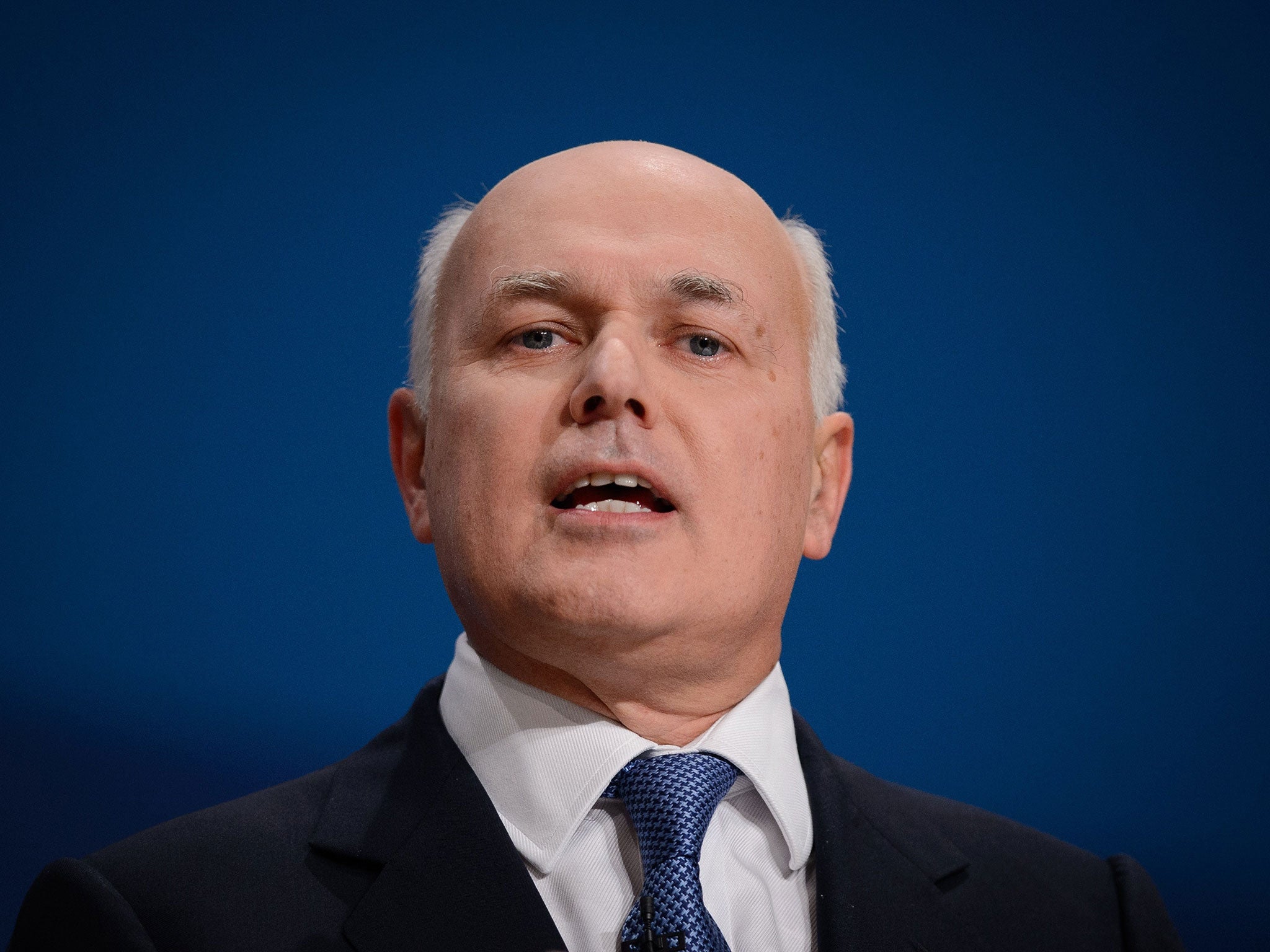Your support helps us to tell the story
From reproductive rights to climate change to Big Tech, The Independent is on the ground when the story is developing. Whether it's investigating the financials of Elon Musk's pro-Trump PAC or producing our latest documentary, 'The A Word', which shines a light on the American women fighting for reproductive rights, we know how important it is to parse out the facts from the messaging.
At such a critical moment in US history, we need reporters on the ground. Your donation allows us to keep sending journalists to speak to both sides of the story.
The Independent is trusted by Americans across the entire political spectrum. And unlike many other quality news outlets, we choose not to lock Americans out of our reporting and analysis with paywalls. We believe quality journalism should be available to everyone, paid for by those who can afford it.
Your support makes all the difference.The Government is to repeal its legally binding child poverty targets, Iain Duncan Smith has announced.
The Work and Pensions Secretary said the law was driving government policy to reduce child poverty on an “unsustainable” path.
“How we measure things matters because it influences what governments focus on and what we target,” he said.
The announcement comes as Mr Duncan Smith prepares to make £12bn welfare cuts that the Government’s own child poverty advisors have said are highly likely to raise child poverty.
“The best interests of children were not central to the development of these policies and children's views were not sought,” the UK Children’s Commissioners’ report, handed to the United Nations said.
“Reductions to household income for poorer children as a result of tax, transfer and social security benefit changes have led to food and fuel poverty, and the sharply increased use of crisis food bank provision by families.”
The Work and Pensions Secretary said he had opposed the relative income poverty target for over a decade.
“I believe that the best route out of poverty is work – it provides purpose, responsibility, and role models for our children,” he said.
“I am announcing that we will bring forward legislation to remove the measures and targets in the Child poverty Act, as well as the other duties and provision.”
In 2006, however, David Cameron said in his Scarman Lecture that “poverty is relative - and those who pretend otherwise are wrong”.
The Government will replace the existing legally binding measure of child poverty with a duty to report on the number of children in households achieving GCSEs and the level of worklessness. There will be no legal obligation to hit these targets, however.
The Child Poverty and Social Mobility Commission would also be renamed the Social Mobility Commission, the minister said.
Labour, who brought in the targets when they were last in government, accused the Government of changing the definition of targets to suit them.
“What he’s read out today is the obituary notice for compassionate conservatism. It’s the death-knell for any idea that his party might one day be the party for working people,” said Stephen Timms, shadow DWP minister.
“It’s news that progress on child poverty has stalled with most poor children living in working households. Their manifesto said they would work to eliminate child poverty – instead their solution is to change the definition.”
The announcement comes hours after the Press Association news agency revealed that Mr Duncan Smith had had his expenses credit card suspended for running up a £1,000 debt to taxpayers.
Child poverty was flat in figures released by the DWP last week.

Join our commenting forum
Join thought-provoking conversations, follow other Independent readers and see their replies
Comments